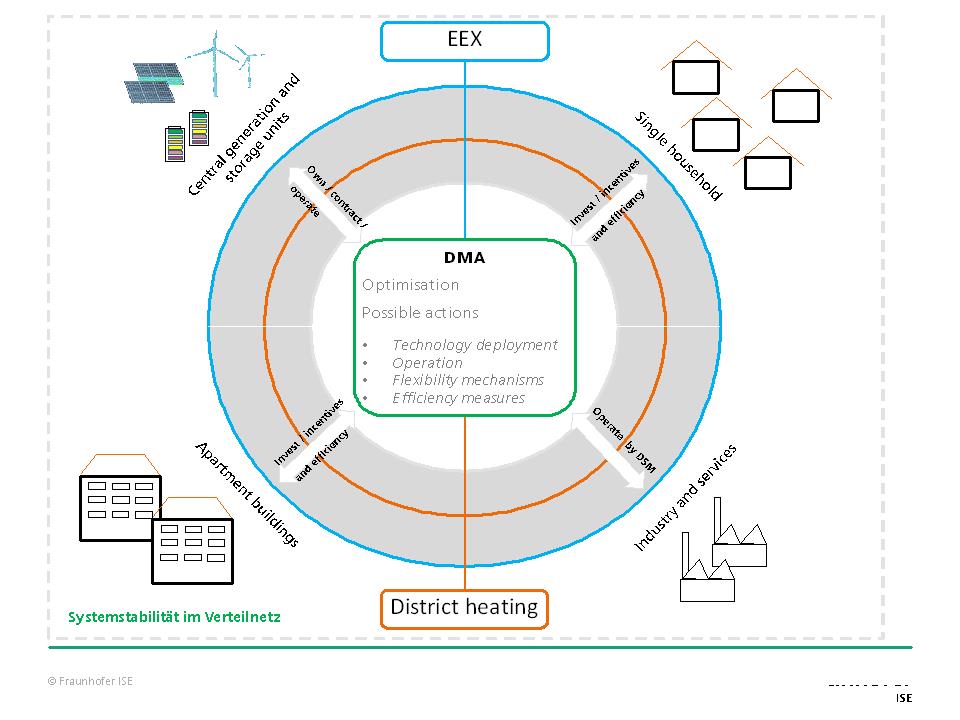| Duration: | August 2014 - Januar 2017 |
| Contracting Authority / Sponsors: | German Federal Ministry for Economic Affairs and Energy (BMWi) |
| Project Partners: | Wuppertal Institut |
StroWae – Grid Management as a New Market Participant to Optimize Electricity and Heat Usage

The objective of this project is the design and a model based assessment of a new market role. The role of this new market participant is to manage the distribution grid in a way that the integration of renewable energies, storages, load management options and energy efficiency actions can be achieved. Particular focus is placed on the options for action based on the use of cogeneration of heat and power, heat storage tanks and efficient heat generation technologies. The target of this new market role is to operate the system at a cost minimum and simultaneously keep system stability. Finally the project answers the question if this new task leads to a techno-economic advantageous system configuration in the distribution grid.
Background of this project is the increasing challenges caused by the energy transition (Energiewende). Based on the future close interaction of electricity and heat usage as well as its generation new possibilities of complementary usage are provided and ensuring grid stability is a complete new challenge faced by the distribution grid operator. However until now there are only a few concepts and analysis on how this transformation should be carried out and its economic viability. It is believed that there is a major potential for flexibility at this level which can be exploited by the modified planning. Therefore the objective of this project is to develop a new market role in the distribution grid, the Decentralized Market Agent (DMA), that has the task to minimize the cost of operation and construction of new technologies in the distribution grid. For that purpose the DMA has different options for action like the construction and operation of thermal and electrical generators, storages, grids and particularly load management options and efficiency measures. For the use of the different options diverse incentive schemes are compiled. The DMA is aligned by the wholesale price at the energy exchange as well as the price for the primary energy carriers. Additionally grid stability is an essential evaluation criterion.
Within the scope of the project different scenarios are calculated to evaluate the role of the DMA. From this recommendations are derived.